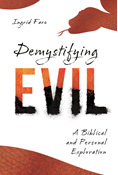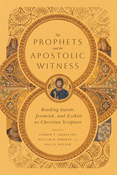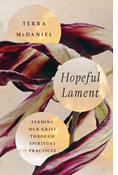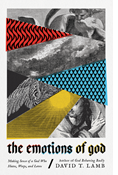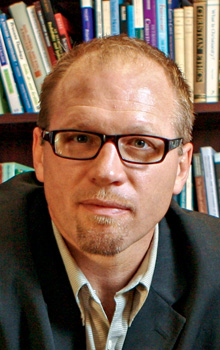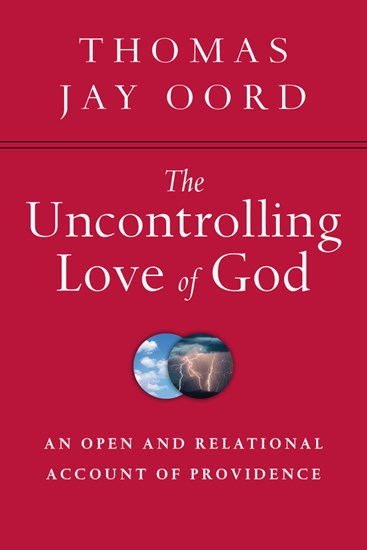
|
The Uncontrolling Love of God
paperback
|
- Length: 229 pages
- Dimensions: 6 × 9 in
- Published: November 09, 2015
- Imprint: IVP Academic
- Item Code: 4084
- ISBN: 9780830840847
-
Other Retailers:
Amazon*
*affiliate partner
IVP Readers' Choice Award
Rarely does a new theological position emerge to account well for life in the world, including not only goodness and beauty but also tragedy and randomness. Drawing from Scripture, science, philosophy and various theological traditions, Thomas Jay Oord offers a novel theology of providence—essential kenosis—that emphasizes God's inherently noncoercive love in relation to creation. The Uncontrolling Love of God provides a clear and powerful response to one of the perennial challenges to Christian faith.
"A work of a mature thinker, this book secures Oord's legacy as the theologian of love. It is a comprehensive theological response to the age-old question of how genuine evil exists even assuming the omnipotent and omnibenevolent God of Christian faith, and is all the more compelling given its biblical, philosophical and scientifically informed tapestry—no mean feat! The faithful across all Christian traditions will be encouraged to live a life of love even as skeptics will be invited to think again and again."
"Can I believe in the providence of God without making God responsible for evil? Open and relational theology answers yes, combining biblical and philosophical resources. Here Thomas Oord, the leading open and relational theologian, makes a powerful case for miracles and the providential care of the self-emptying God. His remarkably clear book offers readers a compelling theodicy and a welcome gift to personal faith."
"A much-discussed option on the contemporary theological scene is so-called open theology. Working within the framework of open theology, and with some truly horrendous examples of evil constantly in mind, Thomas Oord develops a fresh and original doctrine of providence, the central thesis of which is that it belongs to God's nature to offer to creatures non-controlling, other-empowering love. Anyone who subsequently writes about providence will have to engage Oord's cogently argued and lucidly presented account."
"Can we reconcile a biblical understanding of divine love and creativity with the universe of human experience and scientific understanding? Not a new question, of course, but one that requires fresh faith and intellectual subtlety. Tom Oord's new book offers both. And it is written with a clarity and passion that should appeal to a wide range readers."
"This is a scholarly and readable book arguing that God is essentially a God of self-giving love, and that this provides a way of seeing how evil can exist in a world created by God. It is an important theological work, and continues Oord's project of constructing a fully Christian 'open and relational' theology."
"Written in his characteristically winsome style, Oord's account of The Uncontrolling Love of God is a highly accessible yet richly sophisticated affirmation of God's providential engagement with creation that takes seriously the insistence on randomness and novelty in recent science. Oord sprinkles throughout pastorally wise advice on how Christians might think about and engage the undeniable evil and ugliness in life by probing the implications of our fundamental commitment to the self-emptying love of God as manifest in Jesus Christ. Highly recommended!"
"Thomas Oord's The Uncontrolling Love of God is an ambitious book offering a new account of divine sovereignty, divine interaction with creation, a new response to the problem of evil, and other issues needed for a plausible model of God. This account is presented in accessible prose, suitable for any college educated reader."
"Oord's work is a constructive attempt to provide answers to very complex questions in a way that seeks to satisfy human experience, findings from contemporary science, and doctrines of the Christian faith."
"The book is beautifully and clearly written."
"Although it is worthy on its own terms, The Uncontrolling Love of God is perhaps best digested in dialogue with other voices. . . . Oord fills a critical gap in the literature of open and relational theology, and he offers a clear, biblically sound, cruciform answer to the problem of evil and God's providence, while avoiding the pitfalls of divine culpability that previous models of providence fall into."
"Uncontrolling is unquestionably Oord's most comprehensive theological contribution to date. In it he coheres many of his thoughts into a single volume and presents a rational, systematic defense of his doctrine of essential kenosis. As Oord has done for some time, at great personal cost, he upholds God's self-giving, others-empowering love as God's divine attribute; it is love that defines God's providence and ultimately, God's power. Without a doubt, Oord's solution to the problem of evil and the suffering of individuals in the case studies he presents, is more appealing than classical alternatives. Oord has done original theological and philosophical heavy-lifting that Pentecostal and Charismatic scholars should engage, appreciate, and appropriate as highly compatible with the theological distinctives of our own movements."
"Tom's purpose here is to offer an explanation for divine agency in the midst of randomness in a way that respects freedom and embraces relationality. . . . It is, I will say, another fine book from a most thoughtful and thought-provoking theologian."
"Oord has written a wonderful book. In his book he offers an interesting way to understand God, an understanding that may free readers from some of their struggles with the problem of evil, and free them to embrace 'the uncontrolling love of God.' . . . I recommend this book."
"Oord's accessible and far-reaching book provides an imaginative model of providence where love is placed at the center. . . . Oord can be applauded for challenging our assumptions and calling us to think afresh about the nature of God in relation to evil."
CONTENTS
Acknowledgments
1. Tragedy Needs Explanation
2. The Randomness and Regularities of Life
3. Agency and Freedom in a World of Good and Evil
4. Models of God?s Providence
5. The Open and Relational Alternative
6. Does Love Come First?
7. The Essential-Kenosis Model of Providence
8. Miracles and God?s Providence
Postscript
Index






